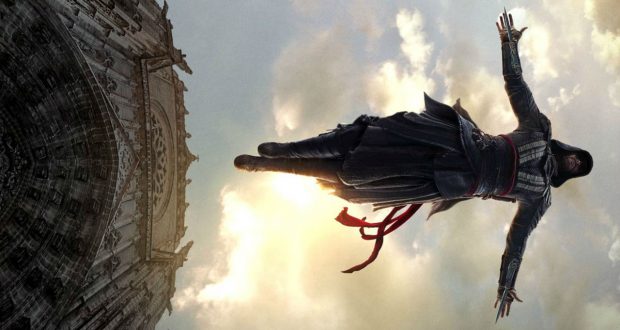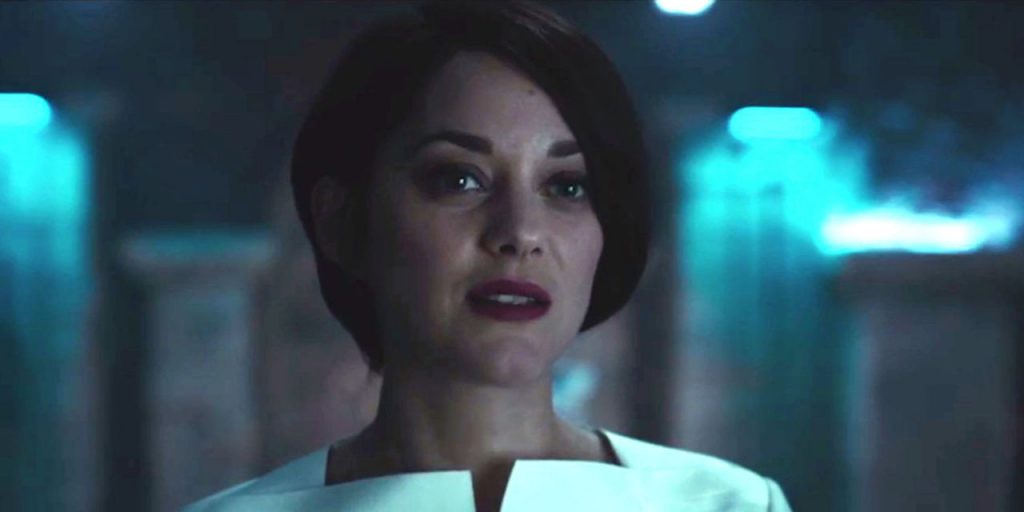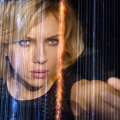Well, it wasn’t as bad as I thought it was going to be. That’s something. Video game films have a bad reputation. They are often light on plot and character development. If they are one of the better entries, they manage to at least make sense and emulate the look of their source material, but that’s usually as much praise as they’ll receive. Unfortunately for Assassin’s Creed, it falls squarely within the realms of a standard – though slightly above average – video game film.
The story follows Callum Lynch (Michael Fassbender) as he is swept up in a centuries-old war between Assassins and Templars. As far as the rest of the world knows, Callum was executed for murder. Instead, Sophia Rikkin (Marion Cotillard) has ‘rescued’ him, to aid in her Animus project. Callum’s lineage can be traced back to an Assassin alive at the time of the Spanish Inquisition, the last known man to have possession of the Apple of Eden – a device from an alien culture containing the blueprint to humanity’s free will. Sophia hopes to use the device to rid the world of violence, but her father (Jeremy Irons) and the Templars have other ideas. Will Callum betray his ancestors and reveal the location of the device to the Templars? Will he manage to stay alive while using the Animus?
Reconstructing a video game world
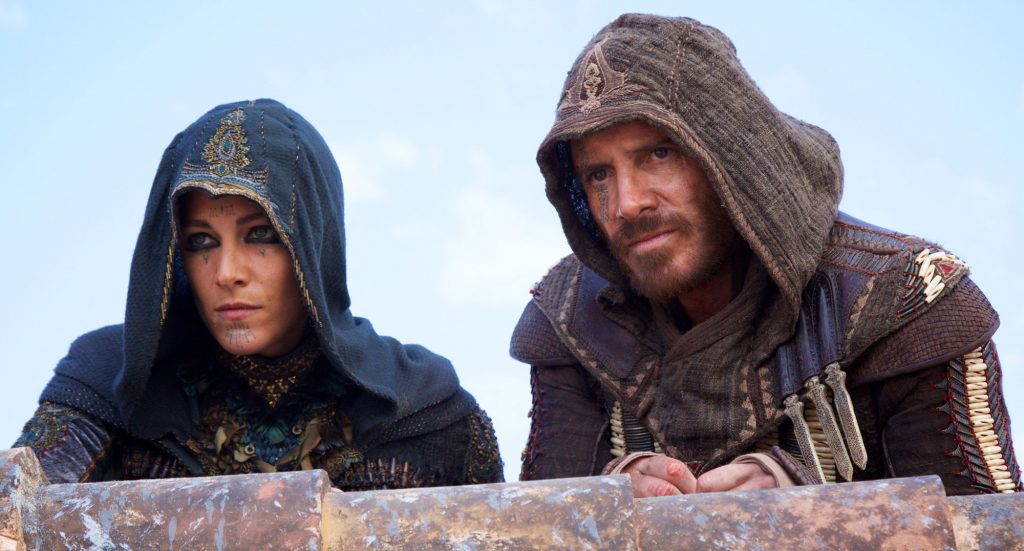 The film looks good – it tries to capture the look and feel of the original game and does an admirable job of it. There are all sorts of nods to the source material, from the soaring eagle motif to the exaggerated motion of pushing through a crowd (somehow without drawing attention!), the stance involved in an execution from jumping down on an enemy to the acrobatic escapades across the city. Even the Abstergo Industries ‘real world’ area feels true to the game (although the later games more so). The animus is represented differently, but this is change is obviously to aid the visual and story depictions for a film.
The film looks good – it tries to capture the look and feel of the original game and does an admirable job of it. There are all sorts of nods to the source material, from the soaring eagle motif to the exaggerated motion of pushing through a crowd (somehow without drawing attention!), the stance involved in an execution from jumping down on an enemy to the acrobatic escapades across the city. Even the Abstergo Industries ‘real world’ area feels true to the game (although the later games more so). The animus is represented differently, but this is change is obviously to aid the visual and story depictions for a film.
The premise of the Assassin’s Creed franchise is fairly nuts – I mean, not Metal Gear Solid levels of crazy, but still up there. While the premise might not matter so much in the game world – the set-up is just that, a set up for the game play – when it becomes a lynch-pin of a film narrative, it falters. These massive ‘religious orders’ have supposedly been working on finding/protecting the Apple for centuries – so why has it taken them so long to get close to it? And surely this genetic memory super-tech was them completely grasping at straws… how on earth Rikkin managed to get the money for experimentation with it in the first place is mind boggling.
Creating character motivations
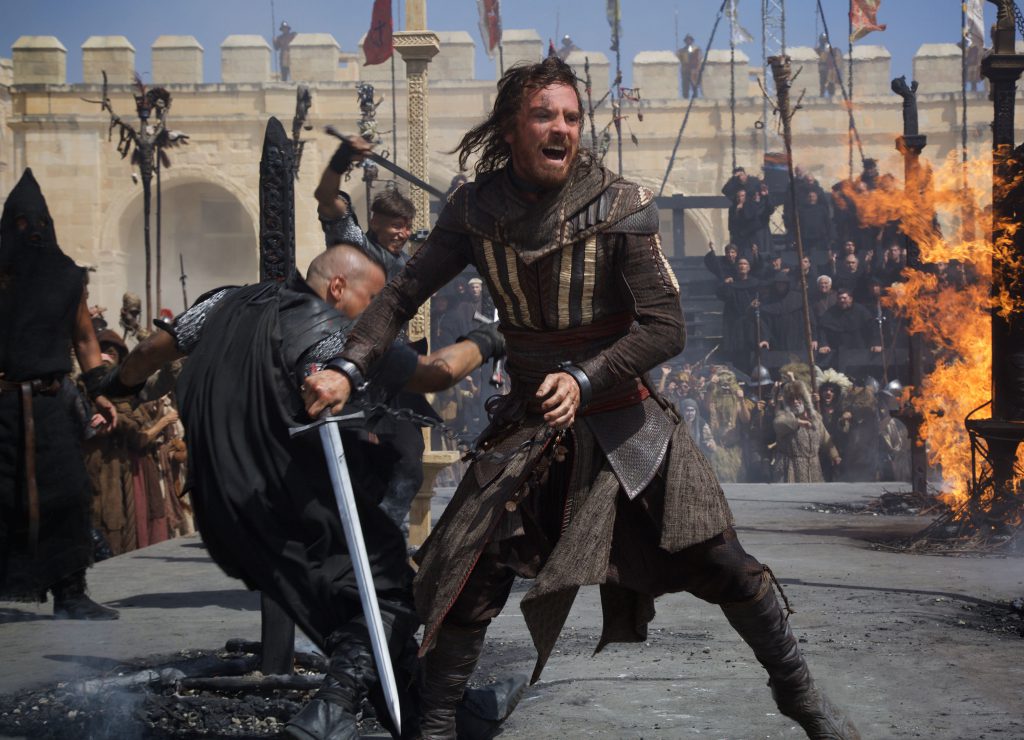 The filmmakers already had the basic outline of what the film would be: a person would be plugged into the Animus, synchronizing with one of their ancestors who would then go on an action-packed adventure to complete some task. A thoroughly developed and interesting main character would have made the film adaptation stand apart from the game. Instead, Fassbender’s character has very little personality or scope for agency – and when he does act, his motivations are either nonsensical or nonexistent. He flip flops between not giving a shit about anything to being committed to the cause on the basis of some fairly pathetic emotional manipulation. When we first meet Callum, he is waiting on death row. We don’t know if he’s even guilty until about a third of the way through the film when he makes an oblique reference to having killed a pimp – I guess this makes him an ok murderer? And I admit, he does make *one* joke about his situation… that’s enough to give him personality and make him relatable, right? By the end of the film, we have no idea who Callum Lynch really is – nor did I care. At all.
The filmmakers already had the basic outline of what the film would be: a person would be plugged into the Animus, synchronizing with one of their ancestors who would then go on an action-packed adventure to complete some task. A thoroughly developed and interesting main character would have made the film adaptation stand apart from the game. Instead, Fassbender’s character has very little personality or scope for agency – and when he does act, his motivations are either nonsensical or nonexistent. He flip flops between not giving a shit about anything to being committed to the cause on the basis of some fairly pathetic emotional manipulation. When we first meet Callum, he is waiting on death row. We don’t know if he’s even guilty until about a third of the way through the film when he makes an oblique reference to having killed a pimp – I guess this makes him an ok murderer? And I admit, he does make *one* joke about his situation… that’s enough to give him personality and make him relatable, right? By the end of the film, we have no idea who Callum Lynch really is – nor did I care. At all.
On the other hand, I have to give Assassin’s Creed props for giving the female lead something to do and arguably more (though not much more) personality/character development than Callum. She shows spunk and commitment, working hard to see her project through. She also has a clear idea of what she wants and how she is going to get it – her approach and methodology are established and she continues to work according to her character throughout. This shouldn’t have to be called out as a good thing, but given the number of pointless love interest characters we generally get in big budget action films, this is a big deal and should be applauded. Not only that, the film references the work that Sophia puts in that the men in her life end up taking credit for. However, this interesting girl-power piece doesn’t really fit in with the rest of the film – but given the rest of the film says nothing of consequence about anything, I’m ok with this being the memorable and interesting aspect of an otherwise lackluster and predictable film.
There were many things wrong with this film, but there is one more thing that I do want to specifically call out. It is so obviously attempting to set itself up for sequels. Why can’t filmmakers create stories that stand alone while also having the capacity for further tales? I mean, it happened with Star Wars, that weird little indy space film that no one thought would make any money, let alone create the enormous empire we have now. It can be done and it often makes films all the more enjoyable as a result. If the story works to set up an interesting and vibrant world with scope for more while also telling a complete narrative in and of itself, everyone wins.
Verdict: It wasn’t as completely nonsensical as it could have been (and the trailer suggested it would be), but that’s not saying a hell of a lot. Boring and forgettable, Assassin’s Creed is another failed attempt to bring video games to the silver screen.
 Pop Verse Pop Culture Universe
Pop Verse Pop Culture Universe
